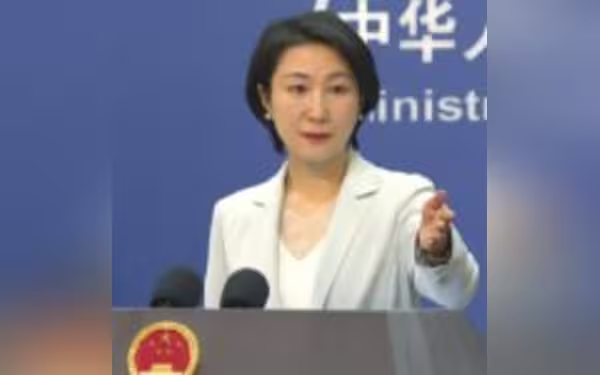Sunday, December 22, 2024 03:06 PM
China Rejects G7 Interference in Sovereignty
- China criticizes G7's remarks on sovereignty.
- Mao Ning urges G7 to practice mutual respect.
- China maintains fair stance on Ukraine crisis.
 Image Credits: pakistantoday
Image Credits: pakistantodayChina opposes G7's interference in its sovereignty, urging mutual respect and fair competition in international relations.
In recent developments, China has voiced its strong opposition to the Group of Seven (G7) foreign ministers' remarks, which it perceives as an infringement on its sovereignty and internal affairs. The G7, a group of seven major advanced economies, has been vocal about various global issues, including China's role in international relations. This situation highlights the ongoing tensions between China and Western nations, particularly regarding issues such as trade, defense, and regional stability.
On Wednesday, Mao Ning, the spokesperson for China’s Foreign Ministry, criticized the G7's statements, which called for a constructive relationship with China while simultaneously demanding that it cease support for Russia's defense industry. The G7's joint statement also addressed concerns about China's so-called overcapacity and made comments on sensitive topics like the South China Sea, Taiwan, Xinjiang Uygur Autonomous Region, and Hong Kong Special Administrative Region. Mao emphasized that China has a consistent and objective stance on these matters, underscoring the need for mutual respect and equality in international relations.
Mao stated, "If the G7 seeks a constructive and stable relationship with China, it should take concrete actions to practice what it preaches and avoid attacks on China." This statement reflects China's frustration with what it sees as double standards in the G7's approach. Furthermore, regarding the ongoing Ukraine crisis, Mao reiterated that China maintains an objective and fair position, advocating for peace talks and emphasizing that it has never supplied weapons to any parties involved in the conflict.
In response to the G7's claims about China's "overcapacity," Mao labeled these assertions as false and urged the G7 to adopt a fair approach to competition. She reiterated that China's stance on issues related to the South China Sea, Taiwan, Xinjiang, Xizang, and Hong Kong remains unchanged. Mao expressed strong opposition to the G7's actions, stating, "We urge G7 countries to adhere to the principles of the UN Charter and the basic norms of international relations and to manage their own affairs."
The ongoing dialogue between China and the G7 underscores the complexities of international relations in today's world. As nations navigate their interests and responsibilities, it is crucial for all parties to engage in constructive dialogue rather than resorting to accusations and interference. The call for cooperation and mutual respect is more important than ever, as global challenges require collective efforts. China, as a significant player on the world stage, has expressed its commitment to fairness and inclusivity, aiming to contribute positively to global development. The future of international relations may depend on the ability of countries to set aside narrow geopolitical games and focus on unity and cooperation for the greater good.













